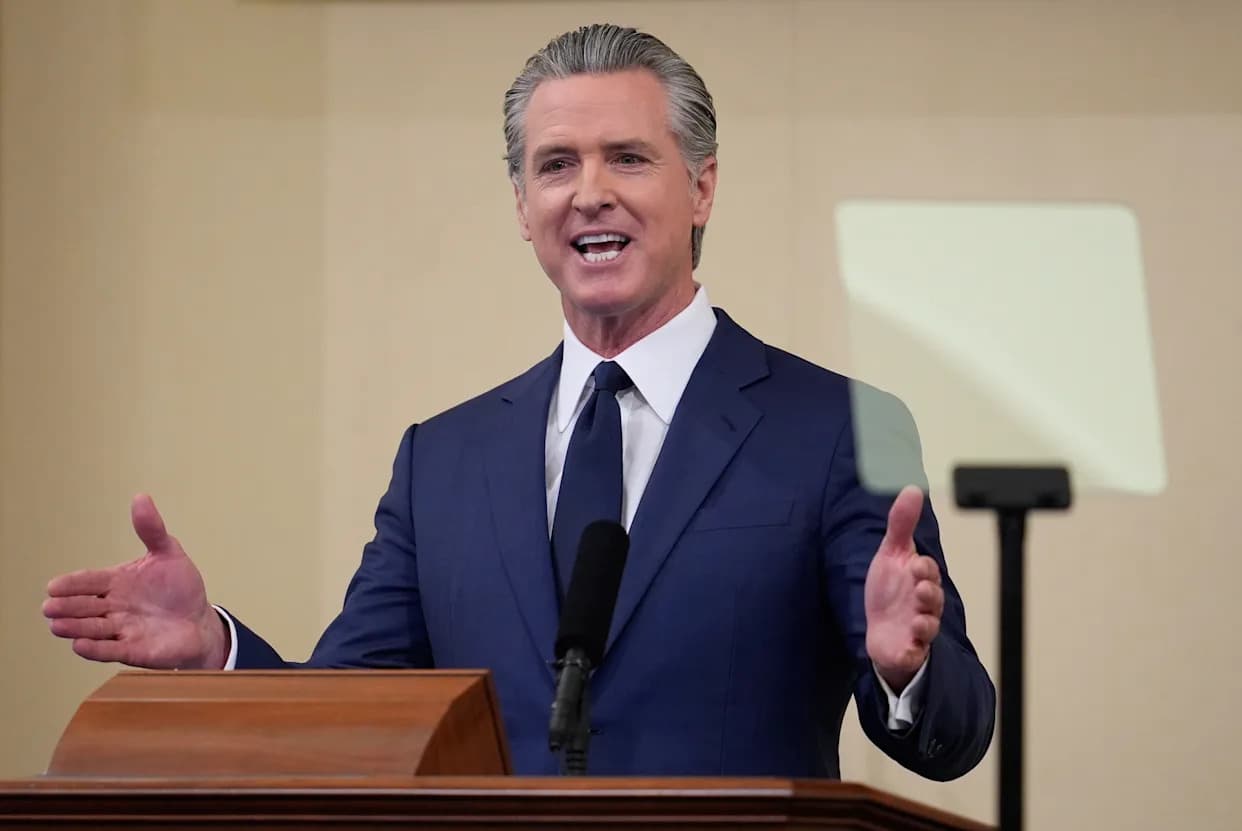Jonathan Martin of Politico argues that California Gov. Gavin Newsom has become the early Democratic front-runner for 2028 after two high-profile years. Martin credits Newsom’s combination of establishment experience, social-media reach and appeal to younger voters, and places him in the lineage of recent successful nominees. He also highlights Newsom’s centrist, inclusive posture and public confrontations with Donald Trump—including 2025 incidents in Los Angeles and a high-profile redistricting fight—as key factors boosting his profile.
Politico Declares Gavin Newsom the Early Democratic Frontrunner for 2028 — Here's Why

Politico names Gavin Newsom an early front-runner for 2028
In a Saturday column, Politico senior political columnist Jonathan Martin argued that California Governor Gavin Newsom has emerged as the early Democratic front-runner to vie for the White House in 2028 after two high-profile years on the national stage.
Martin credits Newsom with combining conventional political experience and establishment credentials with a strong command of social media and an ability to connect with younger voters—an unusual but potentially powerful mix for a modern presidential campaign. "No Democrat has had a better two years than Gavin Newsom and because of it, the California governor... has claimed a new title: front-runner," Martin wrote.
Placing Newsom in the tradition of recent successful Democratic nominees, Martin suggests that under the "old rules" Newsom resembles figures like Jimmy Carter, Bill Clinton and Barack Obama—relatively younger, outsider candidates who could run fresh campaigns against Washington while reassuring party leaders with enough insider experience. At the same time, Martin notes that under the "new rules" of viral fame and social platforms, Newsom is well positioned to break through.
"I want it to be the Manchin to Mamdani party. I want it to be inclusive," Martin quoted Newsom as saying, illustrating the governor's effort to project a centrist and inclusive posture while not fitting neatly into any single faction of the Democratic coalition.
Martin also highlights a series of public clashes with former President Donald Trump as a factor that raised Newsom's profile. Those confrontations began with disputes over Los Angeles wildfire responses in early 2025 and escalated when Trump authorized deployments of the California National Guard and active-duty Marines to the city by summer. Martin credits Newsom's resistance in a consequential redistricting fight—and his readiness to mock Trump and his allies online—with bolstering his standing among a broad anti-Trump coalition.
Martin frames Newsom as an "early front-runner" because of his ability to read the political moment and make opposition to Trump a clear, public theme. Whether that momentum translates into a successful primary campaign in 2028 will depend on how Newsom positions himself against other Democratic contenders and how national dynamics evolve over the next three years.
Help us improve.




























